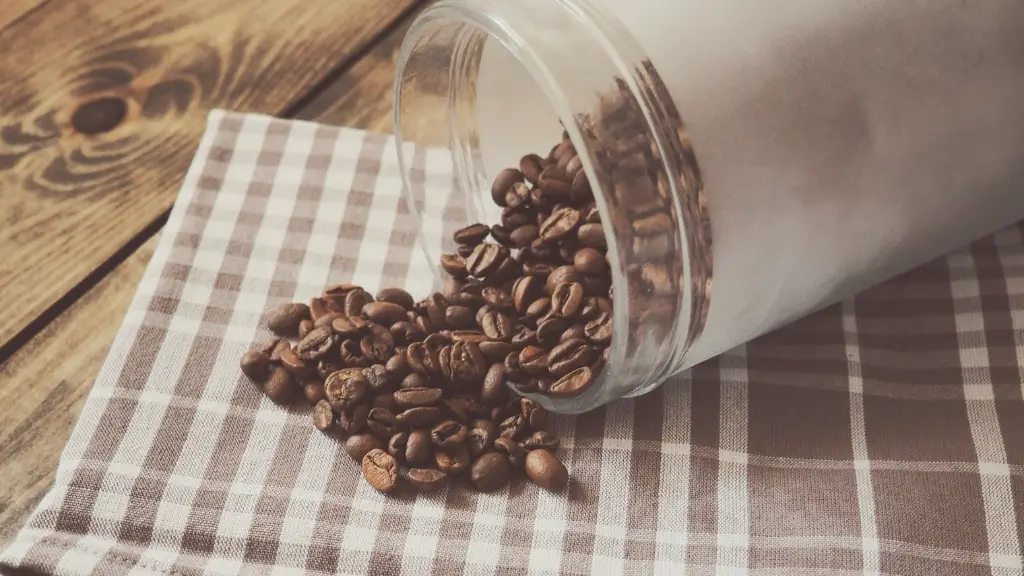Coffee is one of the most popular beverages in the world. It is consumed in large quantities every day by millions of people, providing a much-needed energy boost and helping to improve focus and alertness. However, when it comes to coffee consumption, it’s important to know when to stop drinking it.
It’s generally recommended that adults should limit their daily caffeine intake to no more than 400mg per day, which is equivalent to around 4 cups of regular brewed coffee.
Consuming too much caffeine can have negative effects on your health, such as increased anxiety and insomnia. Therefore, it’s important to be aware of how much coffee you’ve had throughout the day and stop drinking coffee after 4pm.
By avoiding caffeine late in the day, you can ensure that your sleep isn’t disrupted by the effects of caffeine and that you’re getting enough restful sleep each night.
Does Caffeine Have an Impact on Sleep?
Caffeine is a stimulant found in many beverages, including coffee and tea, that can have a major impact on sleeping patterns. Caffeine has been shown to reduce the amount of time it takes to fall asleep, as well as reduce total sleep time and the quality of sleep. As a result, it is important to understand how caffeine affects your body and when it should be avoided in order to get a good night’s rest.
It is recommended that caffeine consumption should be limited throughout the day and completely avoided for at least 6 hours before bedtime. This will allow your body enough time to process the caffeine, allowing you to have an easier time falling asleep. Additionally, drinking large amounts of water can help flush out any remaining trace of caffeine in your system.
If you are having difficulty sleeping due to caffeine consumption, try setting a daily limit for yourself or avoiding it altogether after lunchtime. Creating healthy habits such as limiting your intake of caffeinated beverages and consuming plenty of water can help improve your sleep quality and ensure you are getting the restful sleep your body needs.
How Much Caffeine is Too Much?
Caffeine is a stimulant that can help improve alertness and performance. But too much caffeine can lead to unpleasant side effects such as insomnia, anxiety, and irritability. Generally, it’s best to limit consumption of caffeine to no more than 400 milligrams per day. This equates to about four cups of brewed coffee or two energy drinks. It’s also important to be aware of the time of day you are consuming caffeine as this can affect your ability to sleep at night. To avoid disrupting your sleep, it’s advised to stop drinking coffee after 2 pm. Additionally, some people may be more sensitive to the effects of caffeine than others and should adjust their intake accordingly.
Is it Possible to Drink Too Much Caffeine?
Caffeine is a stimulant, which is why it’s so popular in coffee, tea, and energy drinks. It can give you an energy boost, help keep you alert, and even improve your physical performance. But like anything else, it is possible to have too much caffeine. Consuming large amounts of caffeine can cause jitteriness, irritability, headaches and insomnia. Caffeine is also a diuretic, meaning it increases the amount of water you release as urine. Studies have shown that 400 milligrams of caffeine per day is safe for most adults. This translates to about 4 cups of coffee or 10 cans of soda. To be on the safe side and avoid any potential issues from having too much caffeine, it’s recommended that you stop drinking coffee by 3pm.
Overall, moderate amounts of caffeine are generally safe for most people. But if you start to experience any negative side effects from consuming too much caffeine such as insomnia or headaches then it’s best to cut back on your intake and limit yourself to no more than 400 milligrams per day.
The Effects of Late-Night Caffeine Consumption
Late-night caffeine consumption can have a range of effects on your body and mental wellbeing, including difficulty sleeping and increased alertness. It can also cause headaches, jitters, and restlessness. Caffeine can also affect your energy levels, by providing a short-term boost followed by an inevitable crash. It’s important to be mindful of your caffeine intake and the timing of when you consume it. To avoid these negative effects, it is recommended to stop drinking coffee or other caffeinated beverages at least six hours before bedtime.
Are There Alternatives to Caffeinated Drinks in the Evening?
If you’re looking for a way to reduce your caffeine intake after dinner, you have plenty of options. Herbal teas, decaffeinated coffee, and sparkling water are all excellent choices for late-night beverages. Some people may also enjoy chamomile tea or hot cocoa for a soothing, caffeine-free treat. Additionally, there are many flavored drink mixes that contain either no or low levels of caffeine.
For those who are sensitive to caffeine or just want to avoid it altogether, it is recommended that they avoid drinking coffee after 2 pm. This is because caffeine has a stimulatory effect on the body and can interfere with sleep if consumed too close to bedtime. Additionally, some people may find that their sleep quality is improved if they avoid drinking caffeinated beverages in the evening.
Making Sure You Get a Good Night’s Sleep
Getting a good night’s sleep is essential for feeling rested and energized throughout the day. To help ensure that you get the best night’s sleep possible, there are a few things you should do. First, set a consistent bedtime and stick to it, even on the weekends. This helps your body naturally adjust to a regular sleep schedule and can make it easier to fall asleep at night. You should also avoid looking at screens right before bed, as the blue light can interfere with your natural melatonin production and disrupt your sleep cycles. Additionally, limit caffeine consumption in the afternoon or evening and try to stop drinking coffee by 2-3pm at the latest. This will help ensure that you don’t have trouble falling asleep when it comes time for bed. Finally, make sure your bedroom is comfortable and free from distractions like noise or bright lights so you can drift off easily.
By following these tips, you can help guarantee that you get a good night’s sleep every night!
The Bottom Line
Coffee is a great way to get your day started, but it’s important to know when to stop drinking it. Generally, it’s best to avoid consuming coffee after 2:00 pm or 3:00 pm in the afternoon. By limiting your consumption of caffeine in the evening and at night, you can help ensure a good night’s sleep for yourself. It’s also important to remember that everyone has different needs and tolerances when it comes to caffeine. You should always listen to your body and adjust your coffee consumption accordingly.




